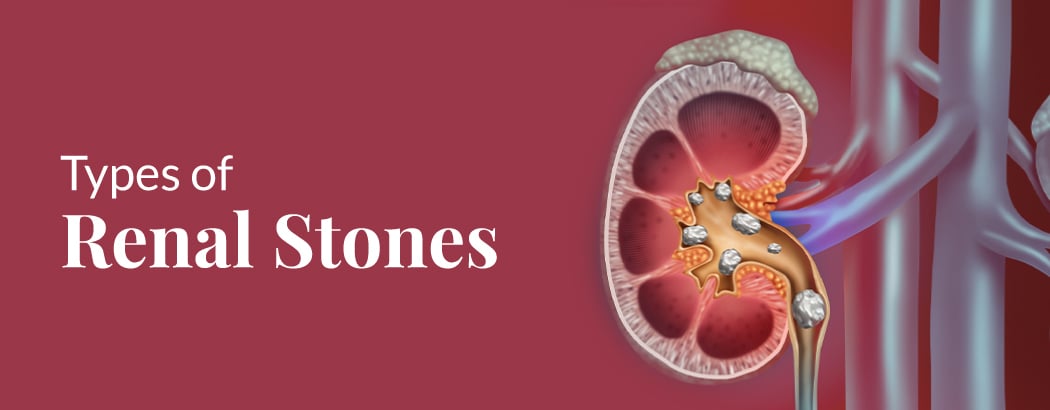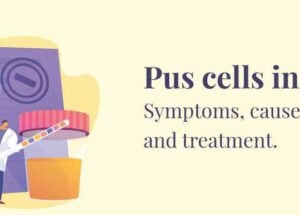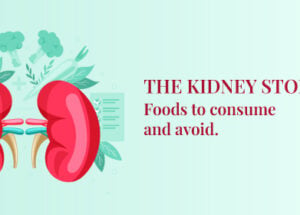Diet and lifestyle advice for the prevention of kidney stones
Do’s and Dont’s for renal stones prevention
| Do’s | Dont’s |
|---|---|
| Drink sufficient water/juices to make urine colourless | Avoid drinking lot of coffee/tea and alcoholic beverages |
| Consume adequate amount of calcium everyday | Avoid highly salted food |
| Increase intake of citrate in diet | Avoid high oxalate containing foods |
| Reduce consumption of protein |
What are kidney stones?
The function of the kidney is to excrete waste products in the urine from your body. These waste products are in the form of salts like creatinine, sodium, uric acid, oxalate and others. Kidney stones can develop from these waste products in your urine. Large amounts of waste products in small volumes of urine can cause these salts to form crystals, much like how common salt is prepared from sea water by evaporating water under the sun.
These crystals can then join together to form a hard lump called a kidney stone. Kidney stones differ in size. Although small kidney stones may pass out of the body in urine, causing only minor discomfort, larger kidney stones can be painful and may need further intervention to remove them. Commonly, stones are formed of calcium oxalate or uric acid. Very rarely due to repeated infection in the urinary tract, phosphate stones form in urine. The type of stone can be determined by analysing the stone composition upon removal of stone by surgery or analysis of stone passed by you.
All patients who have had a kidney stone will have blood tests to check their kidney function, and make sure that their uric acid and calcium levels are not raised.
In high-risk stone formers (young patients and those who have had repeated stones), two 24-hour urine samples should be collected to measure the level of several chemicals in the urine. This will help us to identify the cause of stone formation and advice on how to prevent further stone formation.
General advice
1) Maintain adequate fluid intake enough to make your urine clear or colourless. You can drink tea, coffee & alcohol in moderation, but most of your fluid intake should be water.
Tips to increase your fluid intake:
- Take a large bottle of water when you are out so that you can sip it throughout the day
- Have a glass of water every hour
- Have a drink at set times of the day i.e. when you wake up or before you go to bed
- Have two drinks at each meal time- one before and one after your meal
- Eat foods that have a high fluid content i.e. soups, jellies, fruit and vegetables. (If you have calcium oxalate stones, try to avoid high oxalate fruit and vegetables- see below)
2) Limit salt intake.
Having too much salt in your diet can increase your risk of developing kidney stones.
To prevent this, limit your salt intake to no more than 6g of salt per day
Tips to reduce salt intake:
- Don’t add any salt to cooking or at the table
- Avoid high salt foods e.g., cheese, nuts, crisps, pickles and ready meals
Reduce intake of animal protein (meat and dairy), particularly red meat as it alters the pH of urine- makes it acidic which causes stones.
3) Maintain adequate dietary calcium
Calcium is used by the body to bind oxalate in your gut. A diet low in calcium can lead to an increased amount of oxalate in your urine, which increases the risk of developing kidney stones. A daily intake of up to 1000 mg per day is safe for calcium stone formers. A normal, varied diet will give you about 500 mg of calcium each day.
Low calcium diets are therefore not recommended and you should aim to maintain an adequate calcium intake through your food.
| Foodsrichincalcium | Amount | Calcium (mg) |
|---|---|---|
| Calcium-fortifiednon-dairymilks, juices | 1cup | 400-450 |
| Milk,buttermilk(lowerfatisbest) | 1cup | 300 |
| Yoghurt fromcow’smilk;soyyogurt | 3/4cup | 150-300 |
You should avoid excessive intakes of calcium, i.e. vitamin supplements that contain calcium. If you have too much calcium in your urine, you may benefit from restricting your calcium intake
4. Increase intake of fruit and vegetables (at least five portions per day).
5. Drink fruit juices, but avoid grapefruit juice.
6. Ensure adequate fibre intake
7. Maintain a healthy weight
8. A higher Body Mass Index (BMI) has been associated with a higher risk of developing kidney stones. Maintaining a healthy weight may therefore reduce the risk of developing kidney stones.
9. Take adequate citrates -Citrates reduces stone formation. Lime/Lemon is a good source of citrates. 3 lime in a day produced adequate citrates to prevent growth of stones.
Advice based on specific stones
If you have calcium oxalate stones…
A diet high in oxalates may affect the level of oxalate in your urine.
High oxalate foods include: strawberries, spinach, beetroot, sesame seeds, okra, radish. These are to be avoided
Moderate oxalate food: Black tea, chocolate, nuts (including peanut butter), soy products (tofu, soy milk, soy cheese & soy ice cream) cocoa and chocolates. These have to be reduced but not avoided completely.
If you have uric acid stones…
You should try to limit your dietary intake of purines which are broken down in the body to into uric acid.
The main dietary sources of purines are:
- Meat – all meats, including liver, heart, kidney.
- fish – especially crab, herring, mackerel, sardines, shrimps
- Others – cauliflower, mushrooms, peas, beans, brinjal & spinach.








